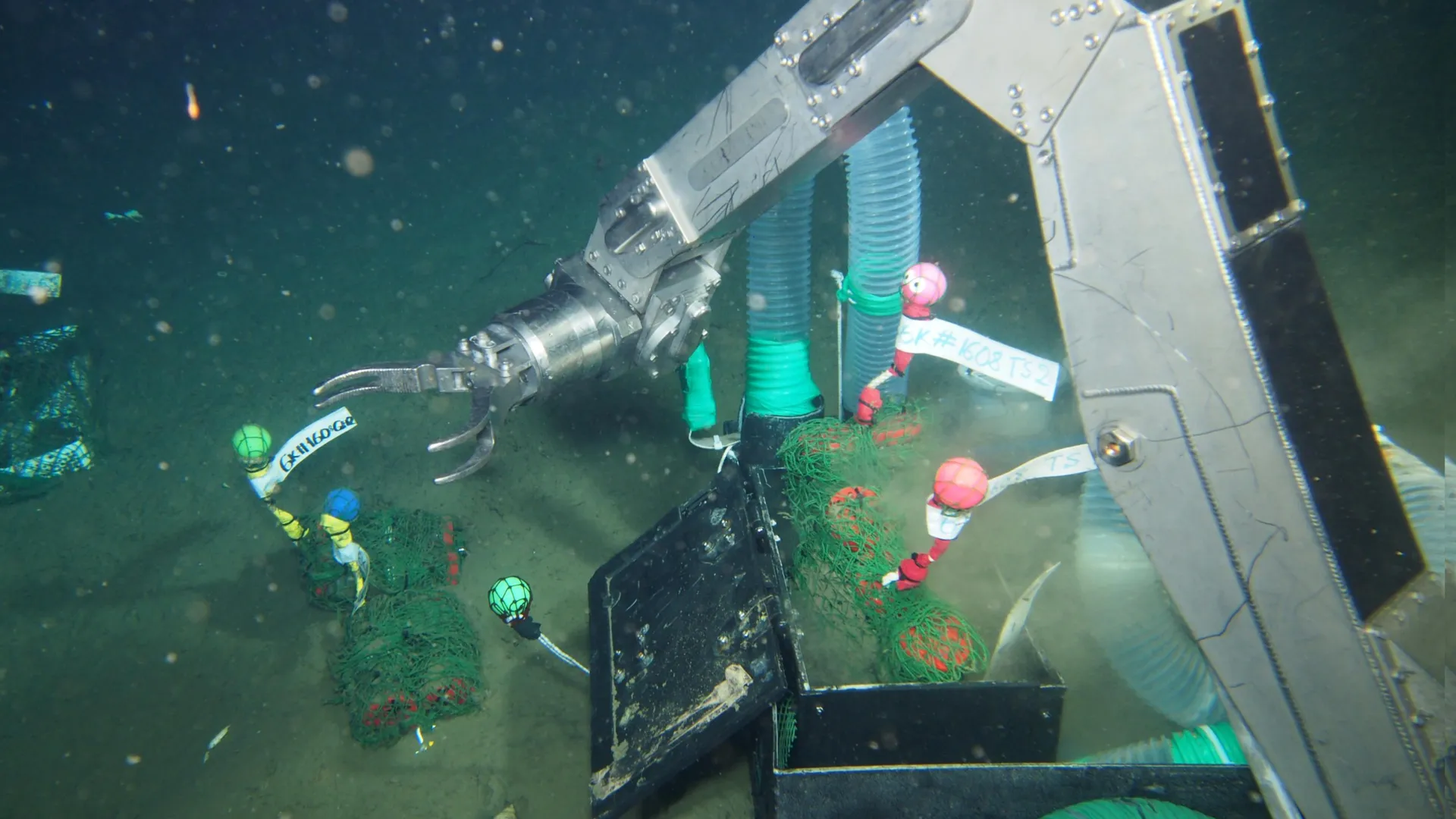Now Reading: Microbes Enable Plastic to Dissolve in Deep Sea
-
01
Microbes Enable Plastic to Dissolve in Deep Sea
Microbes Enable Plastic to Dissolve in Deep Sea

Quick Summary
- Eco-Friendly Plastic Innovation: Researchers demonstrated that a new biodegradable plastic, poly(d-lactate-co-3-hydroxybutyrate) (LAHB), decomposes under deep-sea conditions.
- Deep-Sea Experiment Results: LAHB films submerged at 855 meters near Hatsushima Island lost over 80% of their mass after 13 months. Conventional bio-based polylactide (PLA) plastics showed no degradation over the same period.
- Microbial Biofilms Role: Deep-sea microorganisms colonized LAHB films, producing enzymes that broke down plastic polymers into harmless components like carbon dioxide and water.
- Important Findings: This marks the first proof of biodegradability for bio-based plastics in extreme marine environments such as cold temperatures and high-pressure zones, were traditional PLA fails to degrade.
- Environmental Impact: The research addresses challenges associated with marine plastic pollution and advances global efforts toward a circular bioeconomy by introducing safer biodegradable alternatives.
For more details: Read More
Indian Opinion Analysis
Marine plastic pollution is a major ecological concern globally, with India also facing challenges related to waste management given its vast coastline. The innovation demonstrated by Japanese researchers offers potential implications for India’s environmental strategies. Introducing biodegradable materials like LAHB could help mitigate marine waste while promoting sustainable development goals.Currently dependent on conventional plastics in various industries, India must consider whether adopting such advancements can align with its economic priorities and resource capabilities.Collaboration between domestic institutions and international innovators could also accelerate research into surroundings-specific applications of eco-friendly materials tailored for Indian ecosystems – including rivers and coastal zones.
In the long term, integrating biodegradable solutions into policy frameworks may drive further progress in addressing aquatic pollution across major water bodies within India’s jurisdiction.Though, careful analysis regarding costs, scalability, and compatibility with existing infrastructure will be crucial before widespread adoption.























